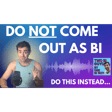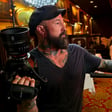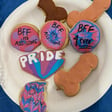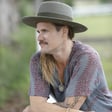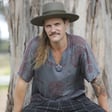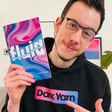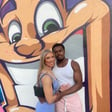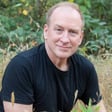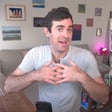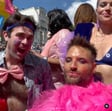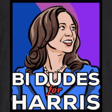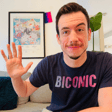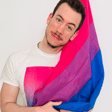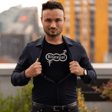
Bi the Way, it's Lois Shearing
Continuing our UK-themed season, this week we sat down with Lois Shearing, a bi activist, freelance journalist and writer based in London. We chatted about their journey along the sexuality and gender spectrums, the many Bi+ groups they’ve been part of and helped organize (including the Bisexual Survivors’ Network, the London Bi Pandas, and an LGBT+ knitting club), and their popular writing about bisexuality that’s been published by The Independent, The Advocate, INTO, Openly, and more.
We then chatted about Lois’ book, “Bi The Way: The Bisexual Guide to Life”, which was published in 2021, highlighting topics such as being “really bi”, bisexuality as freedom, the bi v. pan “debate”, the challenges of coming out, how to find Bi+ community (and why it’s so important), and how sexuality and gender can be interrelated and interdependent. We also covered quite a few next-level Bi 2.0 topics, as I like to call them – check out the episode for some spicy takes!
Buy “Bi The Way: The Bisexual Guide to Life”: https://www.hachette.co.uk/titles/lois-shearing/bi-the-way/9781787752900/
Follow Lois on Twitter: https://twitter.com/LoShearing
Follow Lois in Instagram: https://www.instagram.com/loisfaith95/
Follow Lois on Medium: https://medium.com/@lois.shearing
Lois' Website: https://faithfullwords.wordpress.com/
“Why Bisexuality is a Threat to Terf Politics”: https://medium.com/@lois.shearing/why-bisexuality-is-a-threat-to-terf-politics-5f2b40563e11
Two Bi Guys is produced and edited by Rob Cohen
Created by Rob Cohen and Alex Boyd
Logo art by Kaitlin Weinman
Music by Ross Mintzer
We are supported by The Gotham
Made on Zencastr #MadeOnZencastr
Use my special link zen.ai/twobiguys1 and use twobiguys1 to save 30% off your first three months of Zencastr professional. #madeonzencastr
Try MagicMind and get 20% off your order or 40% off a subscription with promo code BIGUYS20: www.magicmind.co/biguys
This podcast is sponsored by BetterHelp. Visit betterhelp.com/twobiguys to get 10% off your first month.
We're going on a Bi+ trip to Maine in June 2023! Join the email list to get all the info: https://my.trovatrip.com/public/l/survey/rob-cohen
